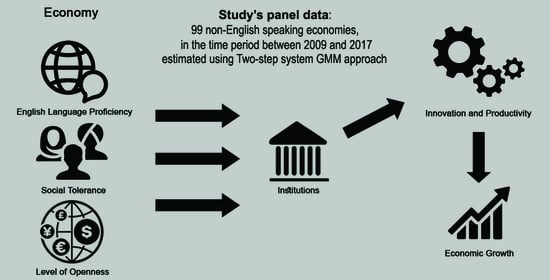Tolerance, Cultural Diversity and Economic Growth: Evidence from Dynamic Panel Data Analysis
Abstract
Share and Cite
Alhendi, O.; Tóth, J.; Lengyel, P.; Balogh, P. Tolerance, Cultural Diversity and Economic Growth: Evidence from Dynamic Panel Data Analysis. Economies 2021, 9, 20. https://doi.org/10.3390/economies9010020
Alhendi O, Tóth J, Lengyel P, Balogh P. Tolerance, Cultural Diversity and Economic Growth: Evidence from Dynamic Panel Data Analysis. Economies. 2021; 9(1):20. https://doi.org/10.3390/economies9010020
Chicago/Turabian StyleAlhendi, Osama, József Tóth, Péter Lengyel, and Péter Balogh. 2021. "Tolerance, Cultural Diversity and Economic Growth: Evidence from Dynamic Panel Data Analysis" Economies 9, no. 1: 20. https://doi.org/10.3390/economies9010020
APA StyleAlhendi, O., Tóth, J., Lengyel, P., & Balogh, P. (2021). Tolerance, Cultural Diversity and Economic Growth: Evidence from Dynamic Panel Data Analysis. Economies, 9(1), 20. https://doi.org/10.3390/economies9010020








